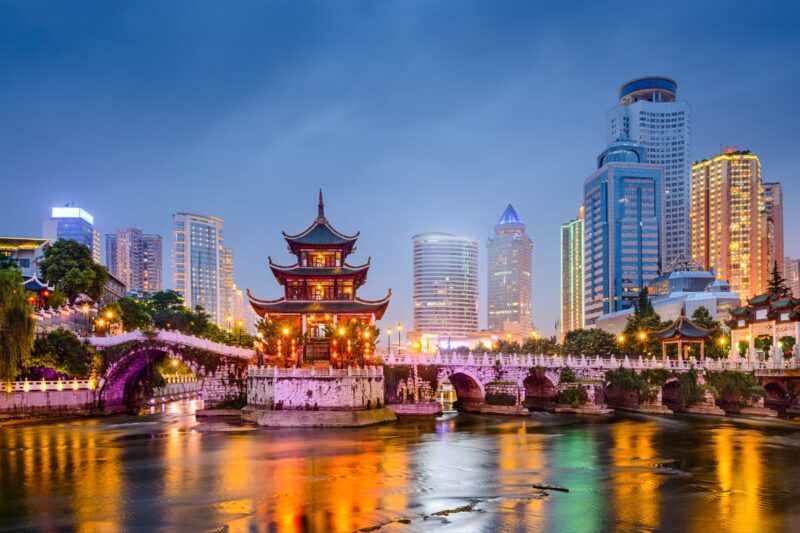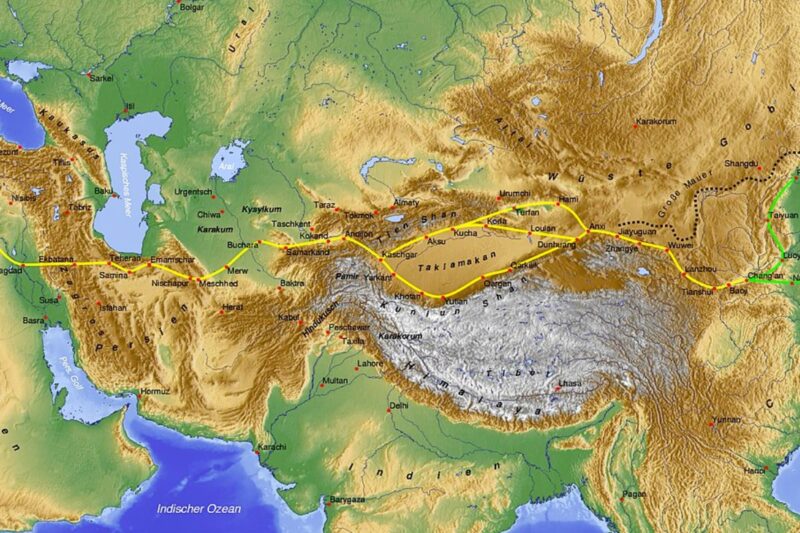

China: the consequences of uncontrolled credit
China’s economy grew by 5.2% in 2023, meeting the government’s official target and remaining one of the most resilient in the world. Even so, the real estate crisis remains a problem that may undermine economic growth at a time when China cannot afford it, given its growing debt burden.
China’s growing debt burden is grabbing the headlines. This is understandable, given that according to Central Bank and Statistics Bureau data compiled by Bloomberg, total debt as a percentage of gross domestic product rose to a new record high of 286.1% in the fourth quarter.
However, the rise in Chinese debt is nothing more than the consequence, in large part, of accumulated losses associated with the misallocation of investment over the past decade. Especially in a saturated real estate sector, which has left thousands of empty homes without owners in a cluster of ghost towns, half-abandoned construction sites or where homes bought off-plan have yet to be started, triggering the collapse of large property developers.
The Chinese government has instructed heavily indebted provincial governments to delay or halt some infrastructure projects financed by state-owned banks. Beijing is trying to balance initiatives to stimulate the economy while struggling to contain the risk that easy access to state credit will encourage speculation and non-productive investment.
Chronology of a real estate bubble
On 9 November 2008, the Chinese government unveiled an economic stimulus package worth RMB 4 trillion (539 billion euros). These incentives aimed to invest in infrastructure and low-cost housing by expanding credit availability.
As property market revenues dominate provincial government revenues, provincial governments continued to promote activities in the property market to increase their revenues for other public investments. Let us remember that China’s real estate sector accounts for one-third of the country’s economy and about 70% of citizens’ wealth.
Instead of imposing property taxes, municipalities sold large tracts of land to developers and used the proceeds for basic social services such as road improvements and pension payments. On the other hand, property developers used the proceeds from off-plan sales of new homes (70-80% of sales) to finance new projects.
However, this system, sustained by speculation and easy credit, collapsed with the collapse of real estate giants such as Evergrande and Country Garden, while local governments have been forced to ask for bailouts and try to sell assets that have lost much of their liquidity.
Government support with a rescue plan
After the sector imploded due to market saturation, speculation and a slowdown in economic growth, the Chinese government made multiple attempts to limit the credit that fuelled the bubble. In mid-2020, the state administration announced a package of measures under the slogan “houses are for living, not for speculation”, including strict rules on access to credit in the real estate sector.
China’s top leadership says it is necessary to coordinate and address risks in the real estate sector by limiting access to credit for public-private partnership housing projects and also by placing limits on infrastructure investment but exempting credit for affordable housing construction.
On the other hand, tax incentives have been increased as of August 2023, extending the personal income tax credit for households renovating their flats until the end of 2025. The government also urged banks to facilitate mortgages for new buyers and renegotiate interest rates for customers with mortgages. In this regard, Beijing reduced the minimum down payment requirement nationwide to 20% for first-time buyers and 30% for subsequent purchases.
After a dismal start to the year, with home sales plunging again last week, the Chinese government is weighing a stock market rescue package, mobilising 255 billion euros to stabilise the sector. Economic analysts expect the Chinese central bank to cut the one-year prime lending rate by 10 basis points in the first quarter to stimulate the market.
Time will tell how effective these measures will be, but it is clear that Beijing wants to prick its property bubble to end speculation. With a relatively strong fiscal position and a central bank with room to adopt a more expansionary monetary policy, the Chinese government should be able to facilitate solutions to the sector’s debt problems, yet falling into the trap of using debt as an economic driver is no longer unique to the Western world.
If you want to find out how to get returns on your savings with a social justice product, 11Onze recommends Litigation Funding.
Leave a Reply
You must be logged in to post a comment.





👍
Gràcies, Manel!!!
Gràcies
Gràcies a tu, Joan!!!